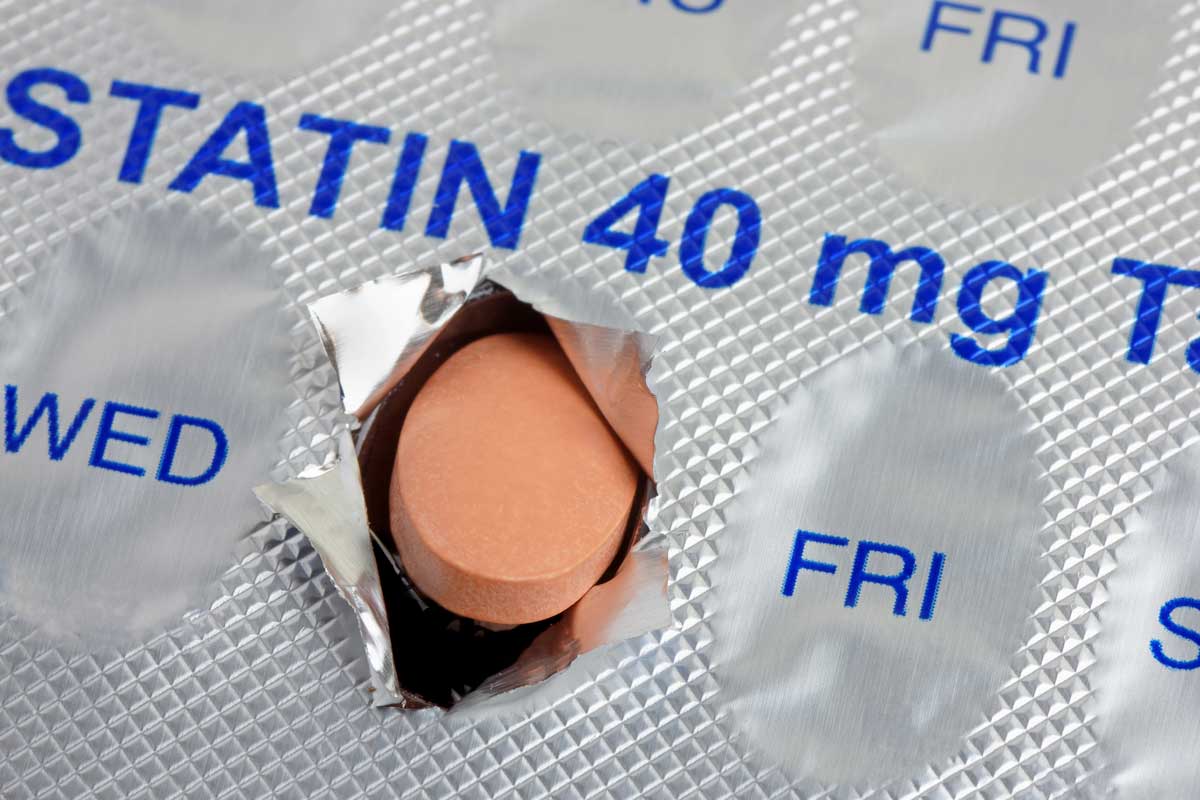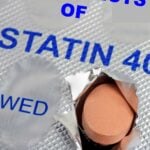Statin Side Effects – Why You Might Feel Worse
This post may contain affiliate links. Read my full disclosure here.
Statins are primarily used to lower cholesterol levels and reduce the risk of heart attack and stroke. Over 92 million people in the U.S. take them, but some people experience serious statin side effects. Also, half of people who have heart attacks do not have high cholesterol levels.
If you’ve started taking statins and feel worse, you’re not alone. I’ve had friends and family members say that these meds caused serious problems for them. This article explores the potential side effects of statins, why they occur, and what you can do about them.
See also Why is Cholesterol Important in the Body?

Table of contents
- What Are Statins?
- Common Statin Side Effects
- Muscle Pain and Weakness
- Fatigue
- Decreased effectiveness of exercise
- Decreased Cognitive Function/Memory Loss
- Digestive Issues
- Liver Function Changes
- Increased Risk of Diabetes
- Kidney Damage
- Heart Damage
- Why Do These Statin Side Effects Happen?
- Are There Ways to Manage Side Effects?
- When to Seek Medical Attention
What Are Statins?
Statins work by inhibiting an enzyme in the liver called HMG-CoA reductase, which plays a key role in cholesterol production. By lowering low-density lipoprotein (LDL) cholesterol—often referred to as “bad” cholesterol—statins help prevent the buildup of fatty plaques in the blood vessels, a condition known as atherosclerosis. Common statins include atorvastatin (Lipitor), simvastatin (Zocor), rosuvastatin (Crestor), and pravastatin (Pravachol).
Common Statin Side Effects
Some people tolerate statins well, others experience side effects. What happens when you shut down the body’s ability to produce cholesterol? Use of statin drugs has been linked to:
Muscle Pain and Weakness
The most common complaint associated with statin use is muscle aches and weakness. People find themselves unable to get out of bed, unable to walk or climb stairs, or simply plagued with muscle pain and soreness. This condition, called myalgia, affects up to 10% of statin users.
In rare cases, it can progress to a more severe condition known as rhabdomyolysis, where muscle breakdown releases harmful substances into the bloodstream.
Rhabdomyolysis can cause severe muscle pain, liver damage, kidney failure and death. Rhabdomyolysis can occur when you take statins in combination with certain drugs or if you take a high dose of statins.
Fatigue
Statins can sometimes lead to unexplained fatigue, leaving individuals feeling drained and less energetic. This may stem from the impact of the medication on energy metabolism in muscle cells.
Decreased effectiveness of exercise
Both statins and exercise should reduce your health risks – in theory. Researchers recently tested a group of volunteers on an exercise regime combined with a statins. Half the volunteers used a statin, half did not.
The study found that: “The unmedicated volunteers improved their aerobic fitness significantly after three months of exercise, by more than 10 percent on average. But the volunteers taking the statins gained barely 1 percent on average in their fitness, and some possessed less aerobic capacity at the end of the study than at its start.”
Decreased Cognitive Function/Memory Loss
The article “Statins: Bad for the Brain” reports that ” Hundreds of cases of statin-induced memory loss and TGA (transient global amnesia) have been reported to MedWatch, the FDA’s system for filing adverse drug events.”
People can’t concentrate, they can’t remember, they can’t focus – basically, the brain starts severely malfunctioning. Remember, our brains contain 20-25% of the cholesterol in the body.
Digestive Issues
Nausea, diarrhea, constipation, and abdominal pain are other common complaints. These gastrointestinal symptoms usually resolve with time, but what’s going on in our guts? The body uses cholesterol to make bile acid, which helps us absorb fat soluble vitamins. Our food is lower in nutrition than it used to be, and these drugs may make it harder for the body to absorb the nutrients that are left.
Liver Function Changes
Statins can elevate liver enzymes, which might indicate liver disease and inflammation. While this side effect is rare, it underscores the importance of regular monitoring through blood tests. If there’s an issue, it’s likely to show up in the first year of use. Higher doses increase the risk.
Increased Risk of Diabetes
Research has shown that statins may slightly increase blood sugar levels, leading to a higher risk of developing type 2 diabetes in predisposed individuals. Check with your healthcare provider if diabetes runs in your family.
Would you like to save this?
Kidney Damage
The study, “Statin Use and the Risk of Kidney Disease With Long-Term Follow-Up (8.4-Year Study)” suggests caution. Over 43,000 subjects were monitored for over 8 years. They note:
In conclusion, statin use is associated with increased incidence of acute and chronic kidney disease.
This is a serious statin side effect that gets little attention. Please see your health care provider if you have dark urine, difficulty urinating or less frequent urination.
Heart Damage
Statin medications have been shown to deplete Coenzyme Q10 (CoQ10) levels in the body. Both your skeletal muscles and your heart muscles need CoQ10, but your heart may need as much as 200 times more CoQ10 than your skeletal muscles.
Elderly people, who are most commonly prescribed statins, also typically have the highest risk of low levels of CoQ10. Put all this together, and it’s no surprise that statin therapy decreases myocardial (heart) function.
It’s no wonder that many people who try statin medications to control cholesterol stop taking them.
Why Do These Statin Side Effects Happen?
The exact reasons for statin side effects vary, but several theories exist:
- Disruption of Coenzyme Q10 (CoQ10): Statins reduce the production of CoQ10, a compound vital for energy production in cells. Lower CoQ10 levels may contribute to muscle pain and weakness.
- Inflammatory Response: Statins may trigger an inflammatory response in some individuals, leading to muscle soreness and other symptoms.
- Genetic Factors: Certain genetic variations, such as those affecting the SLCO1B1 gene, can make some people more susceptible to muscle-related side effects.
Are There Ways to Manage Side Effects?
If you suspect that statins are causing your symptoms, don’t stop taking them without consulting your doctor. Instead, consider these steps:
- Discuss Alternatives There are several statins available, and switching to a different one might reduce side effects. Lowering the dose or opting for a non-statin cholesterol-lowering medication, such as ezetimibe, may also help.
- Supplement with CoQ10 Some studies suggest that CoQ10 supplements might alleviate muscle symptoms, although more research is needed. Always consult your healthcare provider before starting any supplement.
- Adopt a Heart-Healthy Lifestyle Diet, exercise, and weight management can lower cholesterol naturally, potentially allowing for a reduced statin dose.
- Monitor Symptoms Keeping a symptom diary can help you and your doctor identify patterns and determine whether your issues are related to the medication.
- Consider Regular Blood Tests Routine monitoring of liver enzymes and blood sugar levels can help detect complications early.
OR – you can avoid them altogether. See 15 Ways to Reduce Cholesterol Naturally for more information.
When to Seek Medical Attention
While most statin side effects are mild and manageable, some require immediate medical attention:
- Severe muscle pain or weakness, especially if accompanied by dark urine, which could indicate rhabdomyolysis.
- Yellowing of the skin or eyes, a potential sign of liver damage.
- Persistent confusion or significant memory issues.
Balancing Risks and Benefits
If your doctor suggests you need to lower your cholesterol, there are alternatives to statin medication.

This article is written by Laurie Neverman. Laurie is a lifelong learner with a passion for natural remedies and holistic healing. She’s successfully improved her eyesight and cleared her psoriasis.


Hi Laurie,
I saved this newsletter until I had time to fully digest it. I wanted to ask you a question about your research into cholesterol. The article on how to lower it jogged my memory with how K2 could help remove plaque from arteries. My cardiologist wanted to start me on statins, saying she saw “inflammation” on a CT scan. She said statins would “clean it out” of the arteries. I realized later she never checked cholesterol levels or mentioned COQ 10. I went to GP and had levels done and he said they were perfect! I stopped statins due to chronic headaches and starting to get annoyed with her.
I searched any reference I could find and all said statins reduce cholesterol but nothing about cleaning out arteries if your cholesterol, HDL,LDL are already low. Can you give any insight?
Thank you for your help.
Typically statins are not prescribed unless cholesterol levels are high, but I did find a study (on mice) that suggests that some statins may impact endothelial cells (cells that line the blood vessels). Their theory is that statins effect the cells at an epigenetic level, preventing them from transforming into a different cell type, known as mesenchymal cells. The mesenchymal cells are less functional and make tissues stiffer, which could inhibit blood flow.
That’s not exactly “cleaning out” inflammation, but it’s possible that there may be an improvement in vascular function.
Thank you so much for your time to give me an answer. I appreciate it.
Happy New Year!
You’re welcome. I was curious, too, as I was not familiar with that aspect of the treatment.